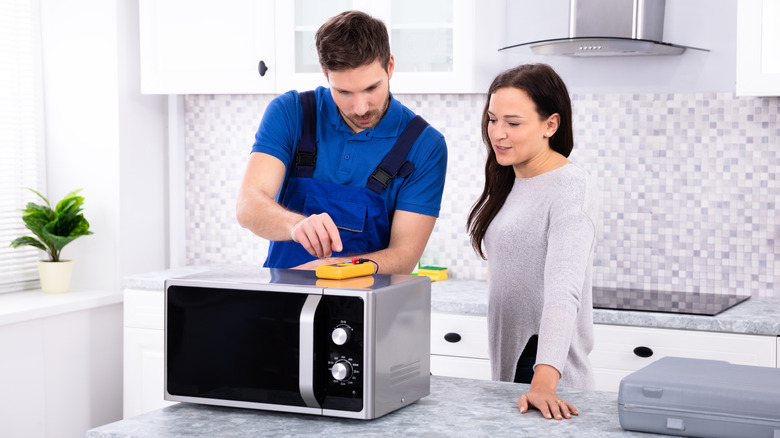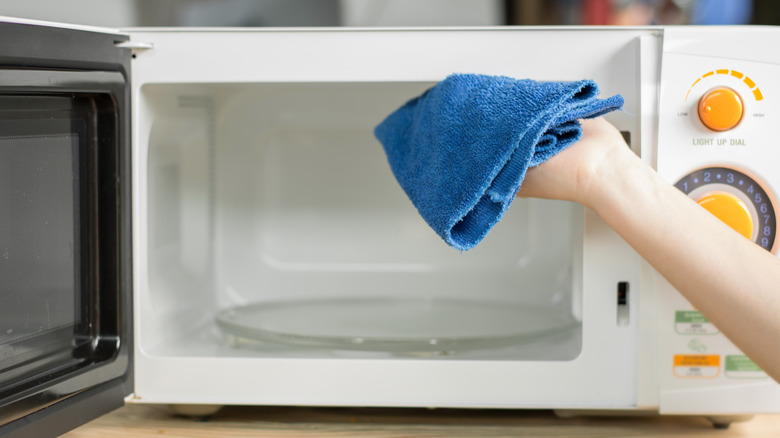How Long Should Your Microwave Last?
We have to admit that a microwave is one of those must-have appliances in the kitchen. And while a microwave's primary function is to warm or cook food quickly, you may be surprised to find that microwaves are actually better at preserving the nutrients in food compared to other cooking methods (via Harvard Health Publishing). The convenience of having a microwave in the kitchen is undeniable, however, this comfort can only last for so long.
Just like any other appliance at home, microwaves don't last forever; they eventually break down and die. In such a scenario, the best course of action is to find a suitable replacement. Countertop appliances are relatively inexpensive and often not worth calling in a repairperson to try and save the unit. That said, just how long should your microwave last? Are there ways of getting more years of service from this convenient kitchen appliance? Let's find out.
Lifespan of a microwave
To begin, not all microwaves are built the same, some are of better quality and are likely to outlast their cheaper counterparts. However, on average, this appliance should last about nine years, according to Consumer Reports. One of the biggest determining factors of how long your microwave will last is the frequency of use. An appliance that's put through an unusual amount of workload is likely to break down earlier than one that's used a few times a week.
A microwave is powered by a device called a magnetron that technically burns out after 1,500 – 2,000 hours of use, per Viva Flavor. This means your appliance has just over six years of service if you use your microwave for about one hour every day. Other than that, the lifespan of your microwave can be shortened even further if you fail to maintain the appliance properly or when you place the wrong items in the microwave.
Microwave maintenance tips
To get the best value for your money out of this magical appliance there are a few tips you can implement. First, regular care and maintenance practices are vital if you want to keep your microwave in optimal shape over the years. The good news is that you don't need sophisticated cleaning agents for your microwave; your regular cleaning products like vinegar or baking soda are enough to make this appliance shine. Another important thing you need to keep in mind is that microwaves need enough ventilation to prevent overheating.
Wherever you choose to place your microwave, be sure to leave enough space around the air vents, per HVAC Seer. Also, it's never a good idea to run the microwave when it's empty. In fact, this is one way to quickly destroy your appliance because of overheating. In an empty microwave, there's no food to direct the energy to; therefore, all the heat ends up burning one side of the appliance.


